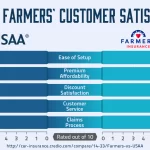Are you ready to dive into the world of technology and innovation? Software development is at the heart of it all, shaping how we interact with devices, applications, and each other. Whether you’re dreaming of creating the next big app or working on complex systems that drive major companies, becoming a software developer opens up a realm of possibilities. This field not only offers exciting challenges but also paves the way for endless career opportunities. If you’ve got a passion for problem-solving and an eye for detail, this might just be your calling. Let’s explore what it takes to embark on this rewarding journey together!
What is a software developer?
A software developer is a creative problem-solver who designs, builds, and maintains software applications. They transform ideas into functional programs that enhance user experiences.
This role goes beyond mere coding; it involves understanding user needs and translating them into technical specifications. Developers often work closely with other team members, such as designers and project managers, to ensure a seamless product.
Software developers can specialize in various areas, including web development, mobile app creation, or system programming. Each specialization requires unique skills but shares the common goal of delivering effective solutions.
With technology continuously evolving, staying updated on trends and tools is essential for success in this field. This dynamic environment makes being a software developer both challenging and exhilarating as they adapt to meet new demands in an ever-changing landscape.
Skills and Qualifications Needed
A strong foundation in programming languages is crucial for any aspiring software developer. Familiarity with languages like Python, Java, and JavaScript can set you apart.
Problem-solving skills are essential. Developers often face complex challenges that require analytical thinking and creativity to solve effectively.
Understanding algorithms and data structures provides a solid base for writing efficient code. These concepts help developers create robust applications that perform well under various conditions.
Additionally, knowledge of version control systems, such as Git, is vital. This tool enables collaboration and tracking changes in the codebase.
Soft skills shouldn’t be overlooked either. Effective communication fosters teamwork while adaptability ensures success in an ever-evolving tech landscape.
Having a degree in computer science or related fields can enhance your credibility but isn’t always mandatory. Real-world experience through internships or personal projects often speaks volumes too.
Different Types of Software Development
Software development is a broad field, encompassing various specializations. Each type plays a crucial role in the tech ecosystem.
Web development focuses on building applications for browsers. This area can be further divided into front-end and back-end developers. Front-end developers create user interfaces, while back-end developers manage server-side logic.
Mobile app development has surged with smartphone usage. Developers here craft applications specifically for iOS or Android platforms, often using different programming languages and frameworks.
Game development merges creativity with technology. Game developers design immersive experiences across platforms like consoles, PCs, and mobile devices.
Embedded systems software deals with specialized hardware. These systems power everything from household appliances to automotive controls.
DevOps integrates software development with IT operations to enhance collaboration and productivity throughout the lifecycle of an application. Each specialization contributes uniquely to today’s digital landscape.
Benefits of Being a Software Developer
Being a software developer opens up a world of possibilities. You get to create and innovate, turning ideas into reality through code. Every project is an opportunity to solve real-world problems.
Flexibility is another perk. Many developers enjoy remote work or flexible schedules, allowing for a better work-life balance. This adaptability can lead to increased job satisfaction.
The demand for skilled developers remains high across various industries. As technology evolves, so do career opportunities. This means job security and potential for growth in your role.
Additionally, the compensation tends to be competitive compared to other fields. Developers often receive attractive salary packages alongside benefits like health insurance and retirement plans.
Networking within the tech community can lead you to exciting collaborations and projects too. Building connections with fellow professionals nurtures growth both personally and professionally while keeping you inspired.
Steps to Become a Software Developer
Becoming a software developer involves several key steps. First, assess your interest in technology and problem-solving. This passion will fuel your journey.
Next, choose a programming language to start with. Python is beginner-friendly, while Java or C++ are great for deeper knowledge.
Engage in structured learning through online courses or coding bootcamps. These platforms can provide hands-on experience and valuable mentorship.
Practice regularly by working on small projects. Real-world applications reinforce your skills and build confidence.
Joining communities is vital too. Networking with other developers can lead to support, collaboration opportunities, and job leads.
Create an impressive portfolio showcasing your work. A strong portfolio sets you apart when applying for positions in this competitive field.
Resources for Learning and Improving Skills
The digital age offers countless resources for aspiring software developers. Online platforms like Codecademy and freeCodeCamp provide interactive courses that cater to various skill levels. They break down complex concepts into manageable lessons.
YouTube is another treasure trove of knowledge. Channels dedicated to coding tutorials can help clarify tricky topics through visual aids and real-time coding demonstrations.
Books also hold value in this field. Titles like “Clean Code” by Robert C. Martin or “You Don’t Know JS” by Kyle Simpson deepen understanding while providing best practices.
Engaging with developer communities on forums such as Stack Overflow or Reddit can spark ideas and provide solutions to common problems faced during programming tasks.
Participating in hackathons is a hands-on way to apply skills, network with others, and learn from peers in the industry.
Salary and Job Opportunities
The salary for software developers varies significantly based on experience, location, and the specific field of development. Entry-level positions typically start around $60,000 annually. However, seasoned professionals can earn well into six figures.
Tech hubs like San Francisco and New York often offer higher salaries to attract top talent. Remote work has also opened up opportunities for developers in areas with lower living costs but competitive pay rates.
Job opportunities are abundant across various industries. From finance to healthcare and entertainment, every sector needs skilled developers. The demand continues to grow as businesses rely more on technology.
Emerging fields such as artificial intelligence and machine learning create even more prospects. With continuous advancements in tech, staying updated is key for anyone looking to thrive in this ever-evolving landscape.
Challenges Faced by Software Developers
Software developers often grapple with tight deadlines. Project timelines can be unrealistic, leading to stress and burnout. Balancing quality work with speed is a constant struggle.
Keeping up with rapid technological changes adds another layer of complexity. New programming languages and frameworks emerge frequently, requiring continuous learning to stay relevant in the field.
Collaboration can also present challenges. Developers must communicate effectively with team members from various backgrounds and expertise levels. Misunderstandings may lead to project delays or conflicts.
Debugging is another crucial yet frustrating aspect of development. Identifying bugs within complex code can take hours or even days, testing patience and problem-solving skills.
Dealing with client expectations poses its own difficulties. Clients may have visions that differ from what’s technically feasible, creating tension between developers and stakeholders as they navigate these differing perspectives.
Tips for Success in the Field
Stay curious and embrace lifelong learning. The tech world evolves rapidly, so keeping your skills fresh is crucial. Attend workshops, webinars, or online courses regularly.
Network with fellow developers. Join local meetups or online communities to exchange ideas and collaborate on projects. Building relationships can lead to new opportunities.
Practice coding daily. Consistency sharpens your problem-solving abilities and helps you internalize concepts better. Try different challenges on platforms like LeetCode or HackerRank for variety.
Don’t shy away from feedback. Code reviews can be daunting but are incredibly valuable for growth. Accept constructive criticism graciously; it will only strengthen your skills.
Maintain a work-life balance to avoid burnout. Make time for hobbies outside of coding to recharge your creativity and motivation in the long run.
Conclusion
Embarking on a journey to become a software developer is an exciting and rewarding path. The role of a software developer goes beyond just writing code; it involves problem-solving, creativity, and continuous learning. With the right skills and qualifications, you can thrive in this dynamic field.
Exploring the different types of software development allows you to find your niche, whether that be web development, mobile app creation, or systems programming. Each area offers unique opportunities and challenges.
The benefits are plentiful: from competitive salaries to job flexibility and the chance to work on innovative projects that impact lives globally. However, it’s essential to prepare for both the advantages and hurdles along the way—like tight deadlines or ever-evolving technologies.
Resources abound for those looking to enhance their knowledge—from online courses to coding bootcamps—and staying updated on industry trends will ensure you’re always improving your skill set.
As you embark on this career path, remember that perseverance is key. Success comes with experience and adaptability. Embrace every challenge as a chance to grow professionally.
Stepping into the world of software development opens doors not just for personal fulfillment but also for contributing meaningfully in today’s tech-driven society. Your journey starts now; take that first step toward becoming an integral part of shaping our digital future!


